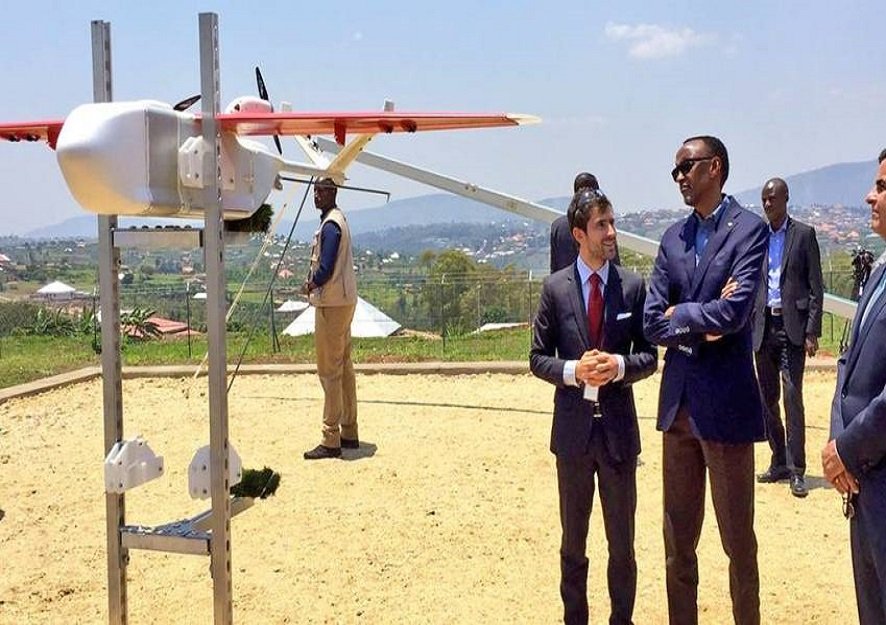
One of the key themes to emerge at this year’s annual gathering of global leaders and civil society organizations at the World Economic Forum held in Davos, Switzerland, is: agile governance of emerging technologies.
And, the least likeliest of countries is playing a lead.
Rwanda, the small East African nation which has risen to great prominence post civil war, has come into the international spotlight for being among the first countries to develop a responsive and comprehensive policy that will allow it to meaningfully employ drone technology.
At Davos, Rwanda announced a new regulatory policy called “performance-based regulations” that would specify safety standards for drones but be open to various uses, missions, and operations. The implication of this policy is huge: it will open the drone space for further innovation and operations as companies would not be restricted by design or technology for regulatory approval.
In 2016, Rwanda partnered with Silicon Valley company, Zipline, and launched its first large-scale drone delivery program to transport emergency medical supplies to rural areas. It was heralded as one of the first advanced uses of the technology in the world. With the new “performance-based regulations” policy, companies like Zipline, which has done 3,000 drone deliveries to date in Rwanda can scale up from small-scale pilots to larger programs with broader impacts.
Zvika Krieger, the World Economic Forum’s Center for the Fourth Industrial Revolution said the following about the country’s interest and drive towards this initiative: “They came to us and said we want to be the world’s leader on this technology. Help us create the most enabling, well-designed policy.”
Jean de Dieu Rurangirwa, Rwanda’s minister of information technology and communication explained, “Building on the success of Zipline’s blood delivery technology, we are working to nurture a drone industry. As we look to the future, we will continue to put in place the infrastructure and policy frameworks that accelerate the adoption of emerging technologies to transform people’s lives.”
Watch this inspiring video of the country launching its first national drone medical delivery where blood, that takes an ambulance 4 hours to deliver to a remote part of the country, is delivered by drones in 45 minutes.








